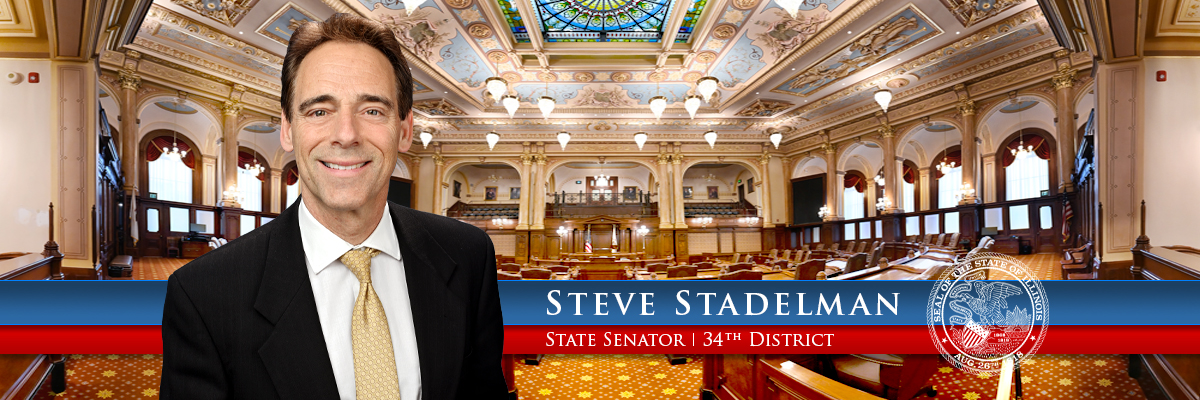Stadelman bill encouraging parents on government assistance
to further their education becomes law
Legislation advanced by State Sen. Steve Stadelman to allow recipients of Temporary Assistance for Needy Families Program (TANF) to count high school and high school equivalency courses as part of the state's requirements to receive benefits was signed into law last week by the governor. Previously, recipients of TANF had to work or participate in job-training programs for 20 hours a week, but high school equivalency classes didn't count toward the core hours needed.
“This is a bipartisan solution that will help parents complete high school, obtain their equivalency degrees and improve their circumstances through education,” Stadelman said. “Finishing high school or receiving a GED is a critical step in gaining employment and being self-sufficient.”
In the Rockford area, about 45,000 adults have not completed high school. TANF provides temporary financial assistance to help pregnant women and families pay for food, shelter, utilities and other non-medical expenses. Senate Bill 2906 is effective Jan. 1, 2017.
Governor green-lights Democrat plan to update pension rolls, cut waste
Illinois taxpayers will benefit from a new law that encourages state pension funds to regularly review their rolls for deceased recipients. State Sen. Steve Stadelman voted in favor of the measure to reduce waste by giving pension administrators until Jan. 1, 2017, to start identifying deceased annuitants at least once a month.
Because each pension fund tracks death-related over-payments differently, it is unclear how many state pension payments are made to deceased annuitants in Illinois. Under the new law, the review process can include using a third-party company, Social Security Administration data or other available information including any method commonly used by other state retirement systems.
Child bereavement measure becomes law
An effort supported by State Sen. Steve Stadelman to guarantee parents time off work to mourn the loss of a child is now law. Previously, a parent whose child had a serious medical condition could receive time off from work under the federal Family and Medical Leave Act. But that same parent would not be allowed under FMLA to take time off for the death of a child.
The initiative expands FMLA coverage by ensuring that employees who lose a child will be provided with two weeks of unpaid bereavement leave -- time can be used to make arrangements, attend the funeral and grieve their child’s death. Illinois joins Oregon as the only states to mandate that employers provide leave to employees who request it after the death of a child.
Voting access expanded to some teens in Illinois
Some teenagers will have the ability to vote in primary elections under legislation supported by State Senator Steve Stadelman and signed into law last week. The new law allows 17-year-olds to vote in the primary of a consolidated election if they will be 18 by the time of the consolidated election.
Consolidated elections primarily are held for local offices, such as school boards, city councils and village boards. The new law also would allow 17-year-olds who will be 18 by the general election to pass nominating petitions for candidates or for a question to be put on a ballot.



